In today’s rapidly evolving manufacturing landscape, businesses often find themselves facing the challenge of producing high-quality products while simultaneously managing costs, maintaining control, and meeting customer demands. Complex and customized manufacturing processes can pose significant hurdles for companies looking to maintain a competitive edge.
This is where contract manufacturers step in. Thanks to their industry knowledge, technology, and connections, they can play a pivotal role in efficiently handling intricate manufacturing activities. In this blog post, we explain how contract manufacturers can be a game-changer for your business.
How Do Contract Manufacturers Impact the Production Process?
Contract manufacturers have the expertise to handle complex manufacturing processes efficiently and they can adapt their processes according to customer requirements. They ensure quality in complex manufacturing by implementing robust quality control measures, staying up-to-date with advancements in production processes, and maintaining effective communication with customers throughout the manufacturing process.
When evaluating and choosing contract manufacturers for complex processes, you should assess their understanding of customized manufacturing requirements, their ability to handle complex processes efficiently, and their track record with similar projects.
The Role of Contract Manufacturers in Customized Manufacturing Processes
Contract manufacturers are experts in various manufacturing processes. Therefore, they can offer a wide range of specialized services to companies looking to outsource their production. For industries where precision and adherence to quality standards are paramount, contract manufacturers provide the necessary know-how to ensure compliance and optimal product quality.
Additionally, contract manufacturers adhere to strict quality standards throughout the entire manufacturing process. They have robust quality control measures in place to guarantee that each product meets or exceeds customer expectations. By closely monitoring every aspect of production, they can identify any potential issues early on and take corrective actions promptly.
Reputable contract manufacturing services possess the necessary skills and equipment to adapt their processes according to customer requirements. They understand that each product is different, and they have the flexibility to adjust their production methods accordingly. With advanced technology at their disposal, these manufacturers can ensure precision and accuracy in every step of the process.
What Challenges Do Contract Manufacturers Face When Working on Complex Manufacturing Processes?
While contract manufacturers are adept at handling standard manufacturing processes, complexities can introduce unique challenges. These complexities may include intricate product specifications, advanced technologies like 3D printing or numerical control, and adherence to stringent quality control measures.
Contract manufacturers must stay up-to-date with the latest advancements in product design and production processes to ensure product quality and maintain a competitive edge. They must invest in cutting-edge technology and skilled labor to stay ahead in a rapidly changing market, all while managing the delicate balance of actual costs and competitive pricing. Additionally, they must have a deep understanding of different production techniques to efficiently manufacture products that meet or exceed customer expectations.
Top 10 Key Factors for Choosing a Contract Manufacturer for Complex Processes
1. Industry Expertise and Experience
Look for a contract manufacturer with a proven track record of handling projects similar to yours. Their experience within your industry demonstrates their understanding of unique challenges and requirements.
2. Technological Capabilities
Assess the contract manufacturer’s technological infrastructure. Do they have the necessary advanced equipment and tools to handle the complexity of your project? Are they invested in staying updated with emerging technologies?
3. Quality Standards and Certifications
Ensure that the contract manufacturer adheres to stringent quality standards relevant to your industry. Certifications such as ISO 9001 or industry-specific standards highlight their commitment to delivering high-quality products.
4. Flexibility and Customization
Complex manufacturing often involves customization. Contract manufacturing firms should be flexible enough to accommodate your specific product design and manufacturing needs.
5. Collaboration and Communication
Effective communication and collaboration are paramount. Evaluate their communication channels, responsiveness, and willingness to engage in open discussions about your project.
6. Project Management and Timelines
Inquire about their project management processes. Can they provide a clear timeline for your project’s completion?
7. Quality Control Procedures
Comprehensive quality control measures are crucial. Understand their quality control protocols throughout the manufacturing process to ensure consistency and compliance.
8. Supply Chain Management
A robust supply chain is vital for timely sourcing of materials. Evaluate their network of suppliers and their ability to manage any potential supply chain disruptions.
9. Cost Efficiency
While cost shouldn’t be the sole determining factor, it’s essential to assess the contract manufacturer’s pricing structure. A balance between cost and quality should be achieved.
10. References and Past Projects
Request references from previous clients. This gives insight into their performance, reliability, and ability to deliver on promises.
Evaluating A Contract Manufacturer’s Expertise in Handling Customized Manufacturing
When it comes to complex manufacturing processes, it is crucial to evaluate a contract manufacturer’s capabilities and ensure they have the necessary skills and experience. You can start by evaluating their track record with similar projects. Look at their past work and see if they have successfully completed comparable customized manufacturing projects. This will give you an idea of their capabilities and whether they can handle your specific requirements.
When choosing a contract manufacturer for complex manufacturing, careful consideration of their technological capabilities is essential. Some manufacturers only specialize in certain industries, so make sure that their expertise aligns with your specific needs. Look for manufacturers who demonstrate their experience and have a track record of delivering high-quality products.
Assessing the Technological Capabilities of Contract Manufacturers for Customized Processes
Assessing a contract manufacturer’s technological capabilities involves more than just a glance at their equipment. To be successful in today’s manufacturing industry, contract manufacturers must have a deep understanding of a wide range of advanced technologies, such as manufacturing processes powered by artificial intelligence or cutting-edge technology solutions like precision machining.
Evaluate the contract manufacturer’s expertise in utilizing advanced technologies effectively. Consider factors such as their capacity to operate these machines, their ability to troubleshoot technical issues promptly, and their track record of successfully executing complex projects with them.
It is also important to assess how well they can adapt and innovate in response to changing customer demands and new technological advancements. A contract manufacturer with a proactive approach toward upgrading their technology will be better equipped to handle customized or complex manufacturing processes.
Mitigating Risks and Ensuring Quality in Customized or Complex Manufacturing
Contract manufacturers should have a robust quality control process in place, spanning from the sourcing of raw materials to the inspection of the finished product. Regular quality control checks and adherence to established protocols minimize the chances of defects or inconsistencies.
Strategies for Effective Collaboration Between OEMs and Contract Manufacturers in Complex Manufacturing
Establish Clear Communication Challenges
Collaboration is the cornerstone of successful complex manufacturing. Open communication and a well-defined contract manufacturing agreement are vital. Establishing clear lines of communication between the OEMs and contract manufacturers includes regular meetings, conference calls, and sharing of project updates to ensure all parties are on the same page.
Outline Your Production Process
Creating a detailed project plan that outlines specific goals, timelines, and responsibilities for each party involved is essential. Clearly outline your expectations, product design, and quality standards. This helps in managing expectations and ensures that all necessary steps are taken to meet the desired outcome.
Stay in Touch
Implementing a transparent supply chain management system allows for seamless coordination of resources and materials needed for manufacturing. Regular check-ins and updates can help in addressing any concerns or changes that arise during the production process. This partnership approach fosters transparency and ensures that the final product aligns with your vision.
Contract Manufacturing Services for Complex and Customized Projects
With the right contract manufacturer by your side, your business can thrive in the dynamic landscape of the manufacturing industry. At Alpha Contract Manufacturing, we take careful consideration of every aspect of your project, from intricate product specifications to industry standards.
Our state-of-the-art technological capabilities empower us to tackle the most challenging tasks, ensuring that your finished product not only meets but exceeds expectations. With a keen eye on production costs and pricing strategies, we strike the perfect balance between delivering high-quality results and maintaining a competitive edge in the market. Join us in revolutionizing complex manufacturing.
Frequently Asked Questions
What Are the Benefits of Working With a Contract Manufacturer for Customized Manufacturing Processes?
Working with a contract manufacturer for customized manufacturing processes offers benefits such as cost savings, access to specialized expertise and equipment, streamlined production, faster time-to-market, and flexibility to scale production based on demand.
How Can Contract Manufacturers Overcome the Challenges Associated With Complex Manufacturing Processes?
To overcome challenges in complex manufacturing processes, contract manufacturers must have extensive expertise and resources. They need to invest in advanced technologies, provide specialized training, and maintain effective communication channels with clients to ensure successful outcomes.
What Factors Should Be Considered When Evaluating the Expertise of Contract Manufacturers in Handling Customized Manufacturing?
When evaluating the expertise of contract manufacturers in handling customized manufacturing, factors like their experience, capabilities, and track record should be considered. Assess if they can meet your specific requirements efficiently.
Product, manufacturing, cost, control, customers, technology, standard, market, manufacturing process, price, performance, high-quality products, consideration, wide range, manufacturing processes, production costs.
Quality standards, activities, manufacturing industry, finished product, product design, product quality, production process, medical devices, competitive edge, contract manufacturing agreement.
Contract manufacturing services, labor costs, period, product specifications, quality control, customer demands, industry standard, advanced technologies, careful consideration, 3D printer.
Medical device contract manufacturing, numerical control, direct control, cutting-edge technology, market trends, level of effort, artificial intelligence, Virtual reality, North America, repetitive manufacturing.
Healthcare contract manufacturing, batch process manufacturing, manufacturing firms, continuous process manufacturing, discrete manufacturing, incremental costs.
Pre-production costs, engineering costs, pre-production costs, actual costs, interim periods, amortization period, annual period, period of adoption, period expense, annual reporting periods.
Price deflation, contract price, price decreases, standalone selling price methodology, unit price, internal controls, customer contract, customer incentives, revenue standard.
Pre-production activities, engineering activities, pre-production activity, single performance obligation, unsatisfied performance obligations, variable consideration.







